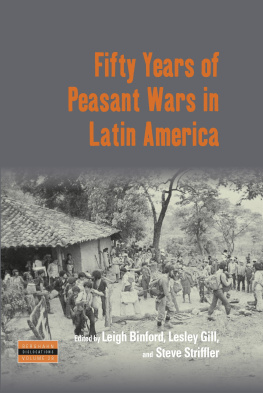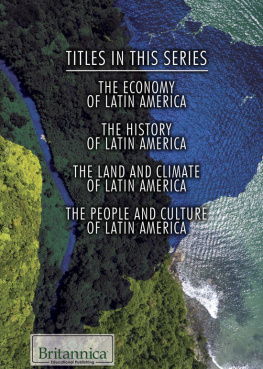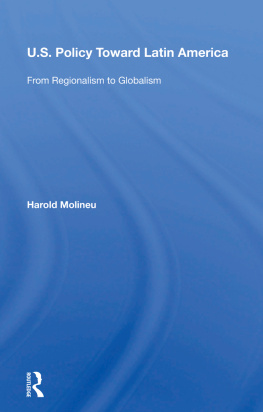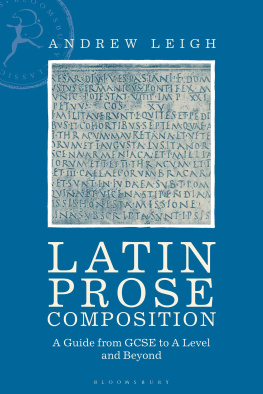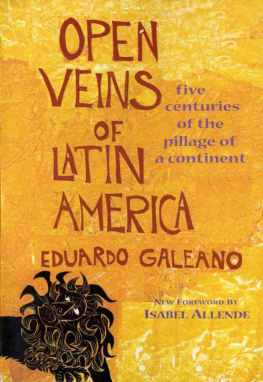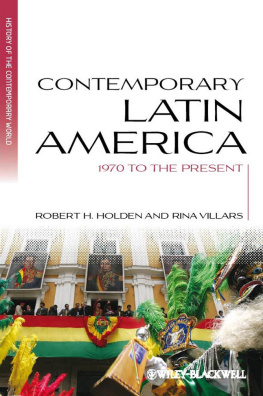FIFTY YEARS OF PEASANT WARS IN LATIN AMERICA
DISLOCATIONS
General Editors: August Carbonella, Memorial University of Newfoundland; Don Kalb, University of Bergen & Utrecht University; Linda Green, University of Arizona
The immense dislocations and suffering caused by neoliberal globalization, the retreat of the welfare state in the last decades of the twentieth century, and the heightened military imperialism at the turn of the twenty-first century have raised urgent questions about the temporal and spatial dimensions of power. Through stimulating critical perspectives and new and cross-disciplinary frameworks that reflect recent innovations in the social and human sciences, this series provides a forum for politically engaged and theoretically imaginative responses to these important issues of late modernity.
Recent volumes:
Volume 28
Fifty Years of Peasant Wars in Latin America
Edited by Leigh Binford, Lesley Gill, and Steve Striffler
Volume 27
Brazilian Steel Town: Machines, Land, Money and Commoning in the Making of the Working Class
Massimiliano Mollona
Volume 26
Claiming Homes: Confronting Domicide in Rural China
Charlotte Bruckermann
Volume 25
Democracy Struggles: NGOs and the Politics of Aid in Serbia
Theodora Vetta
Volume 24
Worldwide Mobilizations: Class Struggles and Urban Commoning
Edited by Don Kalb and Massimiliano Mollona
Volume 23
The Revolt of the Provinces: Anti-Gypsyism and Right-Wing Politics in Hungary
Kristf Szombati
Volume 22
Frontiers of Civil Society: Government and Hegemony in Serbia
Marek Miku
Volume 21
The Partial Revolution: Labour, Social Movements and the Invisible Hand of Mao in Western Nepal
Michael Hoffmann
Volume 20
Indigenist Mobilization: Confronting Electoral Communism and Precarious Livelihoods in Post-Reform Kerala
Luisa Steur
Volume 19
Breaking Rocks: Music, Ideology and Economic Collapse, from Paris to Kinshasa
Joe Trapido
For a full volume listing, please see the series page on our website: https://www.berghahnbooks.com/series/dislocations
FIFTY YEARS OF PEASANT WARS IN LATIN AMERICA
Edited by Leigh Binford, Lesley Gill, and Steve Striffler
First published in 2020 by
Berghahn Books
www.berghahnbooks.com
2020 Leigh Binford, Lesley Gill, and Steve Striffler
All rights reserved. Except for the quotation of short passages for the purposes of criticism and review, no part of this book may be reproduced in any form or by any means, electronic or mechanical, including photocopying, recording, or any information storage and retrieval system now known or to be invented, without written permission of the publisher.
Library of Congress Cataloging-in-Publication Data
A C.I.P. cataloging record is available from the Library of Congress Library of Congress Cataloging in Publication Control Number: 2019042140
British Library Cataloguing in Publication Data
A catalogue record for this book is available from the British Library
ISBN 978-1-78920-561-9 hardback
ISBN 978-1-78920-562-6 ebook
CONTENTS
Lesley Gill, Leigh Binford, and Steve Striffler
Aaron Kappeler
Steve Striffler
Lesley Gill
Leigh Binford
Casey Walsh
Cliff Welch
Forrest Hylton
Gavin Smith
INTRODUCTION
Fifty Years of Peasant Wars in Latin America
Lesley Gill, Leigh Binford, and Steve Striffler
In 1969, Eric Wolf published his seminal Peasant Wars of the Twentieth Century during the US war in Vietnam. Its publication coincided with a powerful anti-war movement and urban insurrections in the United States, anti-colonial movements in Asia and Africa, and the beginning of a revolutionary wave that washed over Latin America in the aftermath of the 1959 Cuban Revolution. Peasant Wars of the Twentieth Century rubbed against the grain of US anthropology, long mired in an embrace of cultural particularity and rooted in micro-studies of specific localities, by pushing the field to conceptualize peasants and their villages within broader fields of capitalist and state power. It addressed a general public at a moment of intense political and intellectual unrest.
Dispensing with the jargon-filled posturing of detached scholarship, Peasant Wars emerged from Wolfs passions and commitments as a young, anti-war professor at the University of Michigan, where he helped organize the first teach-in against the Vietnam War (Gamson 1991). Wolf was less concerned with peasant movements that flickered for a time and burned out, or that were absorbed by the state or repressed, than revolutions that qualitatively reconfigured the social order. The book was unabashed in its concern for who was most likely to engage in revolutionary activity and what kinds of alliances led to transformative social change in different historical cases. It arrived at a moment when revolution, and particularly revolution in which peasants were among the central protagonists, was more than something that had happened in the past, or in theory. A sense that revolution was possibleeven likelyinfused progressive intellectuals, activists, and popular struggles with both intense optimism and deep despair, as popular challenges to the established order drove states capacities for terror. Peasant Wars conveyed a belief that knowledge can serve the cause of social justice and that working people can make history.
Yet the promise of revolution and of Wolfs innovative approach remained unrealized. A series of events, including the decline of (and disillusionment with) anti-colonial struggles, a Cold War counterinsurgency that decimated revolutionary actors, and the collapse of the Soviet Union, all served to diminish the hope for radical change. Revolution seemed neither possible nor desirable, and by the 1980s, a new generation of scholars turned away from structural critiques of capitalism that explored how working people were (or were not) able to forge the kinds of political alliances necessary for challenging the power of state and capital in meaningful ways. This shift was particularly apparent in anthropology, where many scholars rejected the very metanarratives required to understand a changing global order and embraced questions of culture and identity formation. Peasants (and the study of them), along with workers, increasingly faded from view or were understood in more cultural and less political terms. By the end of the twentieth century, the retreat from revolution, both coerced and acquiesced, had erased memories of its emancipatory possibilities.1




